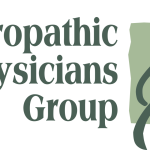
Positions Available In The Allied Health Professionals Field
Allied health professionals are healthcare professionals distinct from nursing, dentistry, medicine, and other pharmacy. They offer a wide range of medical, technical, diagnostic, support, and therapeutic services in association with healthcare. These professionals have acquired a cross-functional skill set consisting of expertise in several different healthcare specialties. They are also expected to possess interpersonal skills such as customer service, leadership, and organizational skills, among others.
There are two main types of allied health professions. One is professional healthcare management which include the direct management and supervision of healthcare professionals, and the other is a public health practitioner which are a doctor who specializes in providing healthcare services to individuals or communities. Both these professions require extensive training and certification. Both professions involve educating their allied healthcare professionals, as well as trainees.
All allied health professionals are required to have a master’s degree in public health, along with at least 2 years of specialized clinical training in the specific health profession they are entering. The number of years of practice required depends largely on the specialty of the allied health professional. Some health professions require more years of schooling and training than others. For instance, nurses need at least three years of specialized study to practice before they become certified. Pharmacy specialists need a four-year undergraduate degree, plus four years of post-graduate residency training, before becoming board certified.
Some allied health professionals, like nurses, opt to take more advanced courses or specializations that complement their present skill sets. Nurses can choose to pursue degrees in critical care nursing or oncology. On the other hand, pharmacists can choose to take courses in nutrition or mental health. To advance from one course to another, allied health professionals may need to obtain an associate degree or bachelor’s degree. These extra degrees, once obtained, allow allied health professionals to specialize in a specific health profession.
Many healthcare sectors depend heavily on allied health professionals. An example is in neonatology where healthcare professionals like nurses and physicians work in close collaboration, sharing information about the patient and the medical history. Doctors also conduct surgical procedures, administer medications, perform examinations, administer therapies and oversee treatment decisions. In general, individuals who want to pursue healthcare professions working in neonatology need to have at least a bachelor’s degree in neonatology as well as three to five years of relevant experience.
Allied health techs offer a wide range of services for patients, including monitoring of vital signs, recording vital signs, performing electrocardiograms, conducting physical assessments, determining appropriate medication and treating symptoms. In order to become a successful allied healthcare professional, individuals need to undergo comprehensive education and training. Usually, this includes a degree in healthcare and several years of related experience. Individuals who pursue careers in this field also need to complete the certification or licensure.
The healthcare industry looks favorably upon graduates with diplomas. A higher degree shows that a student has more analytical skills and will probably be able to succeed in the job market. However, just because a person has a diploma, doesn’t mean they have done enough coursework and acquire the skills needed for their career. Today’s healthcare needs require workers to have not only a diploma but a Master’s degree or higher in order to be competitive. Often these professionals will continue to go to school for additional education and training until they reach a point where they feel completely comfortable in their new role as a healthcare professional.
As the need for allied health professionals continues to grow, there will be increased competition among education providers. For this reason, many community colleges and technical schools are offering courses and degree programs specifically geared towards healthcare professions. Some of these programs may cost less than traditional schools and universities, but in the end may provide better training and greater earning potential. Regardless of the choice of program, healthcare professionals will find that the opportunities in the allied health professional’s field are quite varied and exciting.







